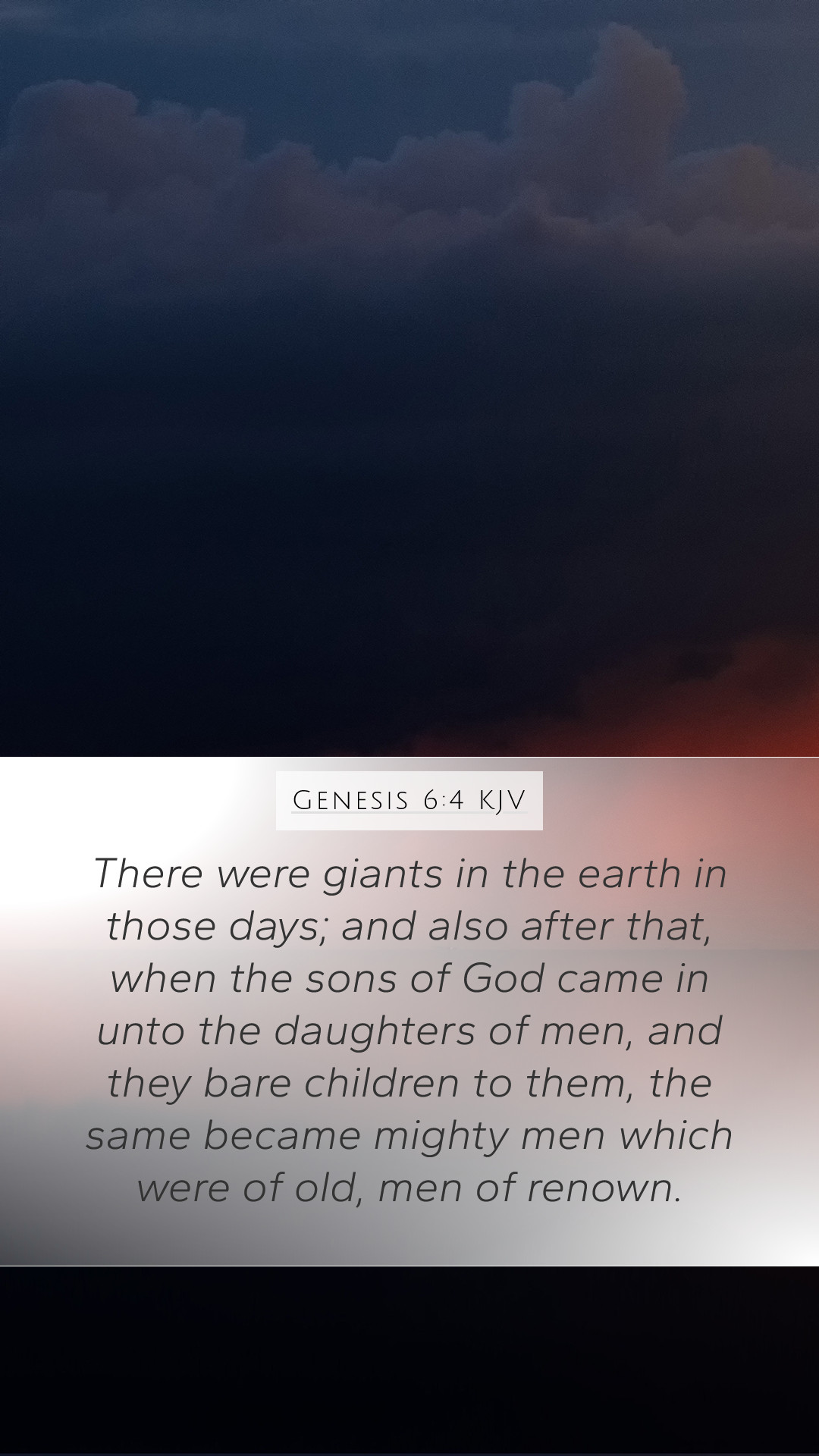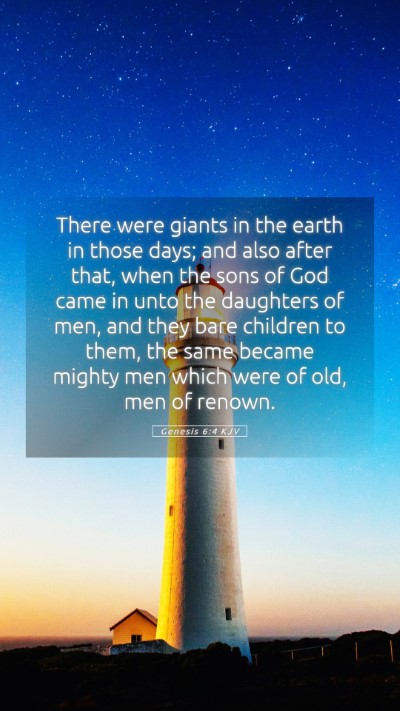Understanding Genesis 6:4
Genesis 6:4 states: "There were giants in the earth in those days; and also after that, when the sons of God came in unto the daughters of men, and they bare children to them, the same became mighty men which were of old, men of renown."
This verse has been the subject of much discussion and various interpretations among biblical scholars, theologians, and laypersons alike. To provide comprehensive Bible verse meanings, insights from public domain commentaries—such as those by Matthew Henry, Albert Barnes, and Adam Clarke—have been combined for a thorough understanding of this complex verse.
Commentary Insights
Matthew Henry's Commentary
Matthew Henry emphasizes that the reference to "giants" suggests extraordinary beings, possibly linked to a state of moral decadence and divine disfavor. He connects these 'mighty men' to the lineage of Cain, portraying a contrast between the godly line of Seth and the increasingly wicked descendants of Cain. Henry notes that the term "sons of God" is interpreted by some as the godly descendants of Seth, while others view it as fallen angels, hinting at a spiritual rebellion that led to God's judgment.
Albert Barnes' Commentary
Albert Barnes provides an interpretation that identifies "giants" as powerful individuals, potentially linking them to physical stature and military prowess. He discusses the phrase "sons of God" as possibly referring to the descendants of Seth who intermarried with the "daughters of men" (Cain’s descendants), suggesting that such unions led to moral corruption. Barnes underscores the significance of this verse in the broader narrative of the pre-flood world, emphasizing the decline in human integrity and the resultant divine judgment.
Adam Clarke's Commentary
Adam Clarke takes a linguistic approach, examining the original terms used in the Hebrew text. He suggests that 'giants' (Nephilim) refers to a class of great men. Clarke presents the two primary interpretations regarding 'sons of God': the righteous line of Seth or fallen angels. He posits that the latter interpretation fits within the narrative of rebellion against God, showcasing the ongoing theme of divine justice and judgment against a backdrop of wickedness.
Summary of Interpretations
The interpretations of Genesis 6:4 highlight a few key themes:
- The Identity of the "Sons of God": This group is often understood to be either the righteous line of Seth or fallen angels, with implications for human integrity and divine judgment.
- Nature of the "Giants": The term is associated with individuals of great stature and importance, but also with moral failures that precipitated God's judgment.
- Moral Decline: The union between the 'sons of God' and the 'daughters of men' symbolizes the spiritual decline and corruption among humanity before the Flood.
Bible Study Insights
For those engaged in bible studies or seeking a deeper understanding of Scripture, Genesis 6:4 offers fertile ground for discussion and exploration. Whether in online Bible study settings or group discussions, the themes and interpretations of this verse contribute significantly to understanding the nature of humanity, divine justice, and the historicity of biblical narratives.
Application of the Verse
Applying the teachings from Genesis 6:4 to daily life invites personal reflection on:
- The impact of moral decisions on individual and communal integrity.
- Understanding the consequences of spiritual alliances across cultural or moral lines.
- The significance of historical narratives in shaping contemporary faith practices.
Additional Cross-References
This verse can be cross-referenced with the following:
- Numbers 13:33 - Mention of giants in the land.
- Job 1:6 - Discussion on the "sons of God".
- 1 Peter 3:19-20 - Reference to spirits in prison linked to the Flood narrative.
Conclusion
Genesis 6:4 serves as a pivotal piece of scripture, rich in meaning and significance regarding divine interaction with humanity and the moral fabric of society. By understanding this verse through diverse biblical commentaries, individuals can better grasp the complexities of God’s revelations and the resulting implications for faith and practice today.


